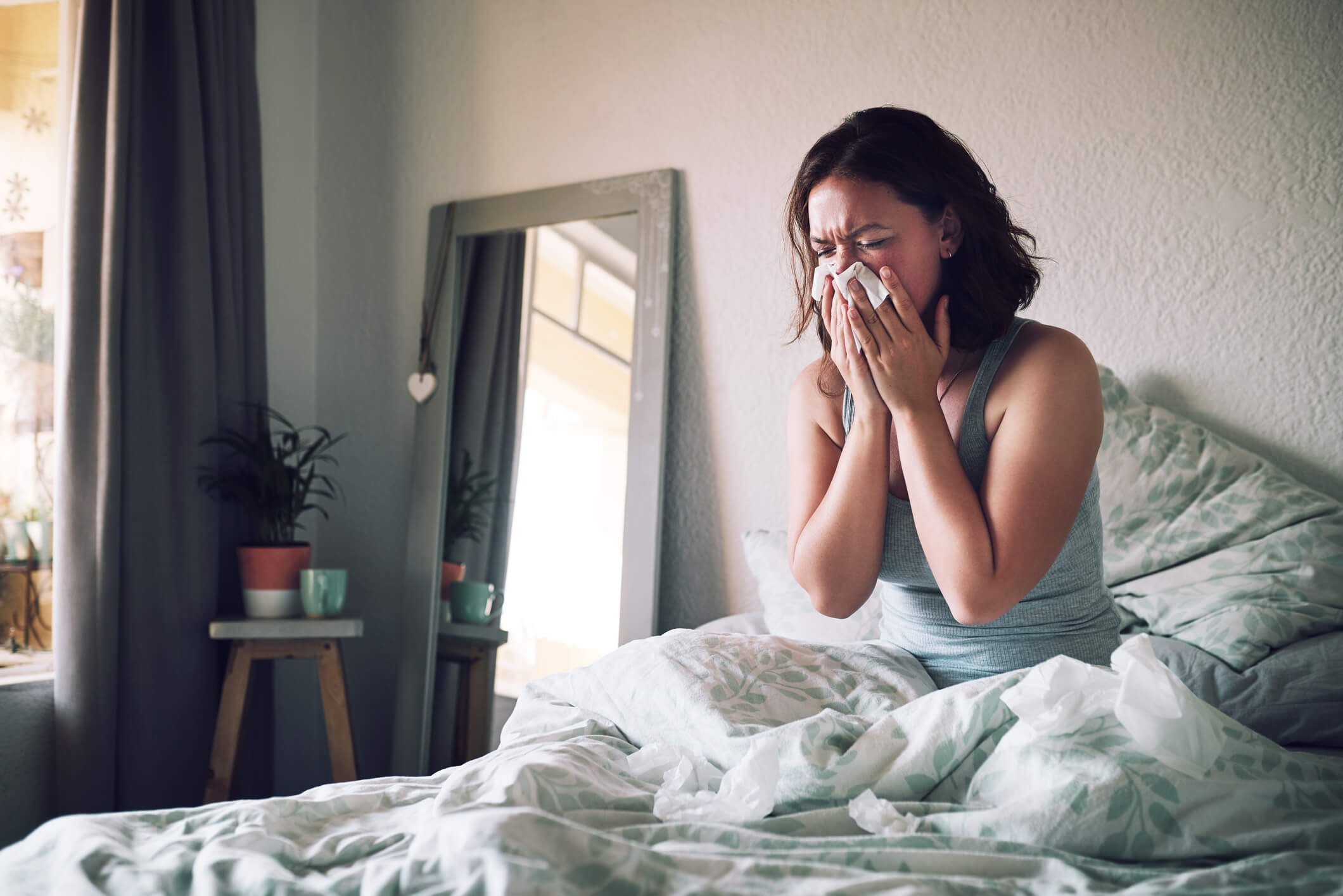Allergies and Good Rest Don't Mix: 5 Tips for Sniffle-Free Sleep
For those who struggle with allergies, all bedtime routines look the same—brush your teeth, shut off the lights, then spend hours trying to breathe through a stuffy nose. Allergies are a constant battle, leaving you with little to no rest. Medication might work, but perhaps you want to try a more natural approach first.
We’ve compiled a list of the most effective ways to say goodbye to allergies and hello to better sleep!
When allergies become serious
Seasonal allergies are more than annoying—they can seriously mess with your sleep hygiene. Symptoms like inflamed sinuses, congestion and postnasal drip create the perfect storm to keep you up at night. People with allergies often report having a difficult time falling and staying asleep, resulting in poor sleep quality.
Poor sleep quality can lead to a host of problems. Your body isn’t getting enough rest, which leaves you feeling tired at work or school. As a result, allergy flare-ups are linked to a decline in cognitive function. Fatigue can sap your motivation, making it difficult to focus and hindering productivity. People who don’t get enough hours of sleep at night might struggle to keep their grades up and forget what was discussed at work meetings.
Allergies can take a toll on your mental health, too. They’re frustrating enough as is, not to mention when the constant sniffles stop you from getting some much-needed shut eye. In addition to impaired cognitive function, fatigue exacerbates stress and anxiety. When we don’t get enough sleep, we feel less equipped to deal with the stressors of everyday life. Not surprisingly, all the extra stress will put you in a bad mood and make it even harder to fall asleep.

How to get better rest during allergy season
It’s clear that allergies have a snowball effect. They disrupt sleep, which in turn negatively impacts your physical and mental health. But it doesn’t have to be this way. Here are a few natural tips to help you banish those pesky nighttime sniffles:
- Elevate your pillows: Congestion is a lot worse when we lie down. That’s because increased blood flow to the head aggravates inflammation, and the lack of gravity means all that mucus is sitting in your sinuses. Relieve allergy symptoms by laying your head on a stack of pillows. The increased elevation will open your sinuses by minimizing inflammation and draining away excessive fluid.
- Install a humidifier: The worst environment for seasonal allergies is dry, stale air. Humidifiers release extra moisture into the bedroom, which lubricates the airways and helps you breathe more easily. You could also experiment with essential oils that contain sinus-clearing properties. Fill an essential oil diffuser with water, then add a couple drops of eucalyptus. The strong scent is sure to wake up your sinuses while keeping you fast asleep!
- Take a hot shower: If you like to shower in the morning, consider adding a quick rinse to your bedtime routine. Much like a humidifier, the steam will open up the sinuses and minimize inflammation. Cleansing your body will also eliminate any pollen lingering in your hair and reduce the chances of an allergy flare-up. Plus, hot showers are relaxing after a long, stressful day. They’re the perfect remedy for both your nose and your nerves!
- Make the bedroom a fur-free zone: Many people with allergies love to snuggle up with their fur babies at night. Unfortunately, your cuddle buddy might just be what’s triggering allergy flare-ups. Pet dander embeds itself in bed sheets, carpet and window curtains. You might tolerate all that dog hair during the day, but it’ll turn falling asleep into a nightmare. It’s in your best interest to set boundaries with pets and reserve the bedroom for humans only.
- Wash your bed sheets: Most people can’t remember the last time they washed their bed sheets. That’s not a good thing, especially if you have to put up with allergies. Reduce the severity of your symptoms by tossing those sheets in the washer on a weekly basis. Rinse with hot water and dry them on high heat to kill any remaining dust mites. Buy another set of pillow cases and switch them out every other day.
Don’t let a couple of sniffles take away your restful sleep. These tried-and-true methods for dealing with allergies are sure to put your sleep schedule back on track. Remember, any steps you take to eliminate allergy symptoms will be most effective right before your head hits the pillow. Everyone could use a bit of self-care at night, anyway!


Leave a comment